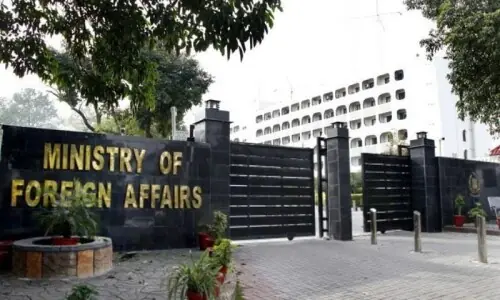IT is depressing to note that the number of executions carried out since Peshawar’s Army Public School tragedy in December 2014 now stands at over 350.
The data on executions was given by the deputy attorney general to the Supreme Court in the context of a petition seeking the swift disposal of appeals filed by over 7,000 prisoners on death row.
While the death penalty has been on the books for years, Pakistan had been maintaining an informal moratorium on executions, especially during the tenure of the last PPP government.
Unfortunately, the APS tragedy, horrific and devastating though it was, led to the evaporation of this restraint by the PML-N government, and since then, there has been a rush to execute convicts — the majority of them not linked to acts of terrorism.
But while we may have some knowledge of the number of executions, there is little information about those who were executed — especially the ones found guilty by the military courts set up shortly after the Peshawar tragedy.
The workings of the military courts are far from transparent, and several questions have been raised about the crimes that were committed, the particulars of the criminal, the nature of the trial, the appeals process, etc.
Meanwhile, controversy has also arisen over the civilian legal system where death sentences are pronounced on the basis of flimsy evidence and poor investigation.
This paper opposes the death penalty on grounds of principle. Even in the worst cases of crime, terrorism or militancy, it is sufficient that the perpetrators be tried and sentenced to a life behind bars. This should serve as a warning and a deterrent.
And where militants are concerned, as has been argued frequently, the threat of execution carries little weight with those already prepared to die.
Study after study internationally has shown that the death penalty does not bring down crime; it only brutalises society. Back when the moratorium was lifted, it seemed more a move to slake the thirst for vengeance after the APS tragedy rather than achieve any success against terrorism.
And in Pakistan’s case, with investigation, prosecution and justice systems that are notoriously inefficient and overloaded, the risk of travesties of justice has always been high.
Reason must prevail, and the country must not continue its descent into a vortex where inhumanity is the norm, and where there is danger of many an innocent life being snuffed out.
Published in Dawn, March 24th, 2016






























